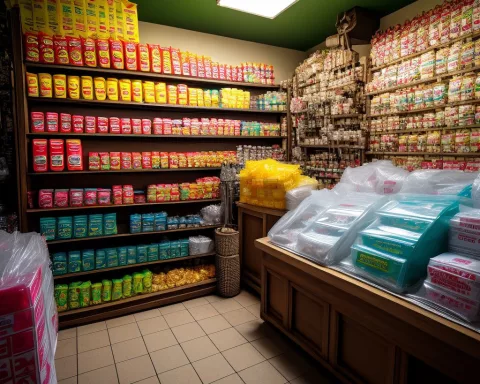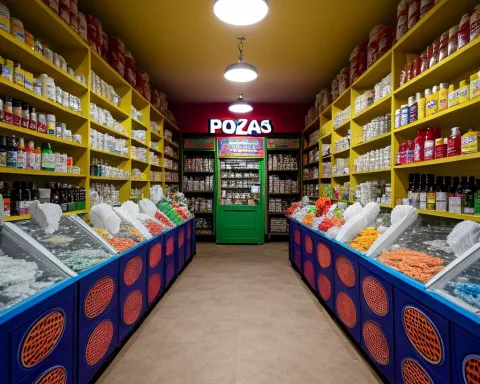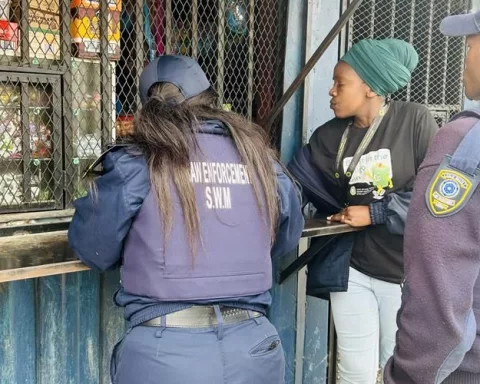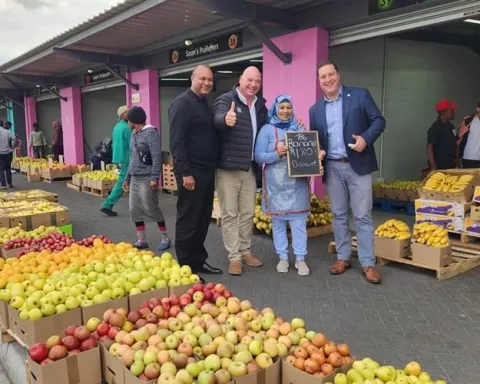South Africa is stepping up the rules for spaza shops—small shops that are vital to local communities. By February 28, 2025, all spaza shop owners need to register with their local governments to keep food safe and follow health guidelines. The government is helping these shop owners by offering training to understand new rules and improve food safety practices. This effort not only aims to protect public health but also to support these businesses as they play a key role in their neighborhoods, creating jobs and boosting local economies. With proper guidance, spaza shop owners can thrive in a safer and more regulated environment.
What are the new compliance requirements for spaza shops in South Africa?
By February 28, 2025, all spaza shop owners in South Africa must register with their municipalities to comply with updated health and safety regulations. This initiative aims to improve food safety and public health, ensuring that these essential businesses operate legally and sustainably within communities.
Navigating New Compliance Mandates
In South Africa’s vibrant informal economy, spaza shops have long stood as essential community fixtures, offering goods and fostering local enterprise. Yet, as these small businesses face new regulations, they find themselves at a critical crossroads. By February 28, 2025, all spaza shop owners and food handling facilities must register with their municipalities to comply with updated legal requirements. This extended deadline reflects the government’s dedication to tackling public health issues, particularly recurring foodborne illnesses.
Last November, President Cyril Ramaphosa highlighted the importance of registration to ensure food safety. Initially, spaza shop operators were given just 21 days to comply. However, acknowledging the unique challenges these entrepreneurs face, the government decided to extend the deadline. This decision underscores the complexities of navigating compliance within an informal sector, where access to resources and information is often scarce.
The National Joint Operational and Intelligence Structure (NATJOINTS), responsible for overseeing this initiative, pointed out significant knowledge gaps among shop owners regarding health, safety, and municipal by-laws. To address these issues, the government launched a detailed training and support program, led by the Department of Small Business Development in partnership with other agencies. Their objective: to equip entrepreneurs with the necessary tools and understanding to operate legally and sustainably.
Empowering Entrepreneurs Through Training
Training sessions and workshops are pivotal in this initiative, offering more than just information—they provide empowerment. Entrepreneurs gain insights into food safety standards, the significance of hygienic practices, and the broader legal framework governing food-related businesses. The Small Enterprise Development and Finance Agency (SEDFA) plays a crucial role in guiding these business owners, ensuring they have the resources needed to comply well before the looming deadline.
Despite these preparations, the government remains proactive. The registration deadline is not an endpoint but a starting point for continued compliance and enforcement. Multi-disciplinary interventions, incorporating law enforcement and Environmental Health Inspectors, are designed to uphold health and safety regulations. These measures are essential for public health protection and maintaining consumer confidence in the food industry.
A particular concern is the risk posed by harmful or banned chemicals and pesticides, such as Terbufos and Aldicarb, which are sometimes misused in food production. NATJOINTS has issued a strict warning against non-compliance, emphasizing the importance of safeguarding vulnerable populations, especially children, from exposure to contaminated food products.
The Broader Impact on Communities
While regulation and compliance are key, this narrative also intertwines with themes of community resilience and innovation. Many spaza shop owners operate in economically marginalized regions, where their businesses serve as critical lifelines. These shops not only supply goods but also create jobs and stimulate local economies. By aiding these businesses in achieving legal compliance, the government aims to preserve these socio-economic benefits while enhancing public safety.
Beyond immediate compliance, the broader objective is to establish a sustainable framework for regulating informal businesses in South Africa. Regular cleanup campaigns and ongoing community awareness initiatives are integral to this vision. Addressing waste management and environmental health issues contributes to a healthier, more sustainable urban environment.
Historically, South Africa’s informal sector has been a dynamic economic force, often outpacing the formal sector’s growth. This sector reflects the entrepreneurial spirit and adaptability of its people, traits honed over decades amidst changing socio-economic landscapes. While the registration drive presents regulatory challenges, it also offers an opportunity to integrate informal businesses into the formal economy. This integration can enhance their stability, access to finances, and broader market opportunities.
A Path Toward Transformation
This initiative aligns with global movements to formalize informal economies, drawing lessons from international precedents where formalization led to improved working conditions, expanded market access, and increased governmental support. Countries that have successfully undertaken this transition show how balancing regulation with support fosters vibrant, resilient economies.
In weaving the story of regulation with community empowerment, South Africa embarks on a transformative path. This process not only aims to elevate food safety standards but also acknowledges the critical role small businesses play in the national fabric. The initiative is set to reshape food handling and distribution, ensuring that the next chapter of the informal economy is marked by safety, compliance, and opportunity.
As the registration deadline nears, anticipation and apprehension fill the air in these communities. The challenges and opportunities of this transition are clear, but with sustained support and clear guidance, spaza shop owners are ready to meet these challenges. They embody the resilience and ingenuity that define South Africa’s entrepreneurial spirit, standing poised to thrive in a newly regulated environment.
FAQ: Strengthening South Africa’s Informal Economy – The Role of Spaza Shops
What are the new compliance requirements for spaza shops in South Africa?
By February 28, 2025, all spaza shop owners must register with their local municipalities to comply with updated health and safety regulations. This registration aims to improve food safety and public health, ensuring these essential businesses operate legally and sustainably.
Why was the registration deadline extended?
The government recognized the unique challenges faced by spaza shop operators in navigating compliance within the informal sector. Originally set at 21 days, the registration deadline was extended to give entrepreneurs additional time to understand and meet the new requirements, reflecting the government’s commitment to supporting these small businesses.
How is the government supporting spaza shop owners?
The government is providing training and resources to help spaza shop owners understand the new regulations and improve food safety practices. This initiative includes workshops that cover food safety standards, hygienic practices, and the legal framework governing food-related businesses, empowering owners to operate legally and effectively.
What measures are being taken to ensure compliance and safety post-registration?
After the registration deadline, the government plans to implement ongoing compliance measures through multi-disciplinary interventions involving law enforcement and Environmental Health Inspectors. This approach aims to uphold health and safety regulations consistently, ensuring public health protection and maintaining consumer confidence in the food industry.
Why are spaza shops important to South African communities?
Spaza shops serve as vital community fixtures, providing essential goods and creating jobs, particularly in economically marginalized regions. They stimulate local economies and contribute significantly to the livelihoods of residents, reinforcing their role as critical lifelines within their neighborhoods.
How does this initiative align with global trends in informal economies?
This initiative reflects a broader global movement to formalize informal economies, drawing lessons from successful international examples. By integrating spaza shops into the formal economy, South Africa aims to enhance stability, access to finance, and market opportunities for these businesses, ultimately fostering a vibrant, resilient economy that uplifts communities.












